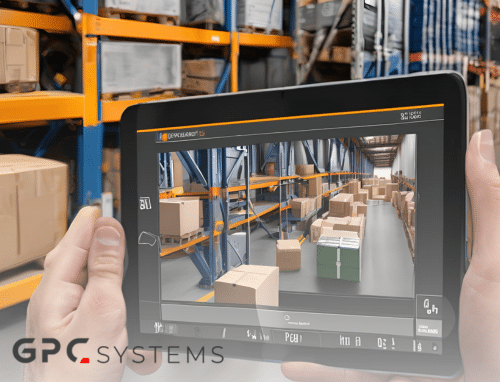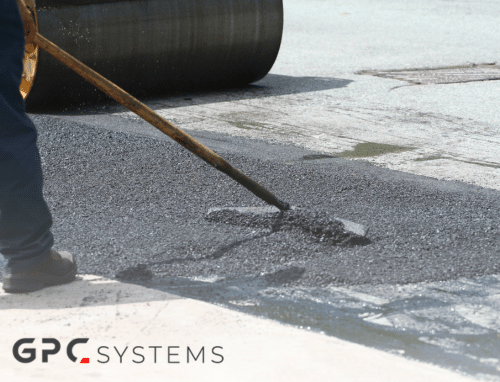
Empowering Women in Logistics: Pioneering Change and Leading the Way
The logistics industry, historically dominated by men, is witnessing a transformative shift as more women take on influential roles. Traditionally underrepresented, women are now breaking through barriers and making significant contributions, reshaping the logistics landscape. This change marks a pivotal moment towards a more inclusive and diverse industry. In this blog, we explore the essential role of empowering women in logistics and the profound impact they are making.
The Importance of Gender Diversity in the Logistics Industry
Gender diversity is not just a goal but a strategic advantage, particularly in logistics. A diverse workforce that includes women in leadership roles brings a wide range of perspectives, fostering innovation and creativity. Companies that champion diversity can tackle complex challenges more effectively, leading to better business outcomes. Studies show that gender-diverse teams often achieve greater success than those with less variation, underscoring the importance of promoting gender equality in logistics. Embracing diversity strengthens the industry by leveraging a variety of skills and experiences, benefiting both individual career growth and the sector as a whole.
Challenges Women Face in the Logistics Field
Despite progress towards greater gender equality, women in logistics continue to face significant challenges. Here are five key obstacles they encounter and strategies to overcome them:
- Predominantly Office-Based Roles: Women are often directed towards office-based roles rather than operational or manual positions, limiting their career progression. Encouraging women to pursue a variety of roles and providing training in logistics operations can help overcome this barrier.
- Gender Bias and Stereotyping: Persistent stereotypes about women’s capabilities in logistics roles can hinder their advancement. Companies must actively challenge these biases by promoting diversity training and inclusive policies.
- Limited Access to Leadership Positions: Women often face barriers to reaching leadership roles. Organisations can address this by implementing leadership development programmes specifically tailored for women, ensuring they have equal opportunities for advancement.
- Work-Life Balance Challenges: The demanding nature of logistics can make it difficult for women to balance work and family responsibilities. Flexible work arrangements and supportive policies can help women manage these challenges effectively.
- Inequitable Pay and Career Development Opportunities: Pay disparities and limited career development opportunities remain significant issues. Companies must conduct regular pay audits and provide equal opportunities for training and career advancement to ensure equity.
Addressing these challenges requires a concerted effort from organisations and individuals to create a supportive environment that empowers women to thrive. By confronting and overcoming these barriers, we can pave the way for a truly diverse and empowered workforce.
Empowering Women Through Mentorship and Networking
Mentorship and networking are powerful tools for empowering women in logistics, providing guidance, support, and opportunities for growth. Formal mentorship programmes, where seasoned professionals offer insights and advice, can significantly enhance women’s career trajectories. Meanwhile, networking events tailored to women in logistics create platforms for connection, experience-sharing, and relationship-building. Organisations like the Women in Logistics UK offer events and networking opportunities for women in the sector. More information about their events can be found on their website: Women in Logistics UK.
Leadership Initiatives for Women in Logistics
Leadership initiatives are crucial in empowering women and increasing their representation in executive roles within logistics. Providing women with opportunities to develop leadership skills and ascend to leadership positions has a profound impact on their career growth. Companies can support this through leadership training programmes, workshops, and seminars designed specifically for women. Investing in these initiatives cultivates a diverse and inclusive workforce, driving innovation and success within the logistics sector. Promoting female leadership is essential for fostering a culture of empowerment and equality.
Celebrating Success Stories and Role Models
Highlighting success stories and showcasing female role models within the logistics industry is a powerful way to inspire and motivate others. Sharing the achievements of women who have excelled elevates their voices and demonstrates that success knows no gender. Celebrating these stories not only recognises the contributions of women in logistics but also encourages others to aspire to similar heights. By spotlighting female leaders’ accomplishments, we can create a ripple effect of empowerment, driving positive change towards a more inclusive industry.
Here are three women who are shaking up the supply chain industry:
- Alison Maffin – Supply Chain Director at Waitrose: Alison Maffin’s career at Waitrose began as a graduate in 1996, and she has played a pivotal role in overhauling the supermarket’s supply chain systems. Despite facing challenges like an infamously glitchy software update, Maffin successfully navigated the global supply chain crisis, achieving strong availability. Her effective leadership earned her a promotion to supply chain director, where she continues to drive innovation and efficiency.
- Meinir Childs – Supply Chain Director at Sainsbury’s: With over 20 years of experience at one of Europe’s largest FMCG companies, Meinir Childs brought valuable insights to Sainsbury’s when she joined as head of supply chain for fresh & frozen in 2019. Since then, she has spearheaded a major transformation of Sainsbury’s supply chain, modernising its legacy systems and leading one of the most significant updates in decades.
- Lauren Lepley – Group Supply Chain Director at Morrisons: Lauren Lepley’s journey to becoming group supply chain director at Morrisons began with a regional management role in 2016. Promoted in 2022, she now oversees operations across all Morrisons supermarkets, convenience stores, wholesale, and online channels. Her leadership has improved product availability by over 5% for three consecutive years and reduced waste by 1.2%, demonstrating her dynamic and practical approach to logistics management.
These women exemplify the growing influence of female leaders in the logistics and supply chain industry. Their success stories inspire others to pursue careers in this dynamic field and contribute to a more inclusive and innovative industry.
The Future of Women in Logistics and the Importance of Continued Support and Empowerment
As we reflect on the future of women in logistics, the importance of ongoing support and empowerment initiatives cannot be overstated. Fostering a culture that champions gender equality and diversity will help cultivate a more inclusive and dynamic industry. Companies must continue to provide opportunities for women to excel in leadership roles. Through mentorship programmes, training, and initiatives that promote gender parity, we can create a more equitable playing field for all. By committing to a supportive environment, women in logistics will continue breaking barriers and leading the way towards a brighter, more inclusive future.
GPC’s Commitment to Empowering Women in Logistics
At GPC, we proudly celebrate the achievements and contributions of women across our organisation, from Isabelle Miller, our Head of Business Development and Partnership Solutions, to Ellie Pearce, our Head of Projects. These remarkable leaders exemplify the strength and innovation that women bring to the logistics industry. We are excited to witness and support the journey of women being empowered and rising to leadership roles. As a company, we are committed to fostering an environment that champions diversity, equality, and empowerment, ensuring that women continue to thrive and lead the way in logistics.




